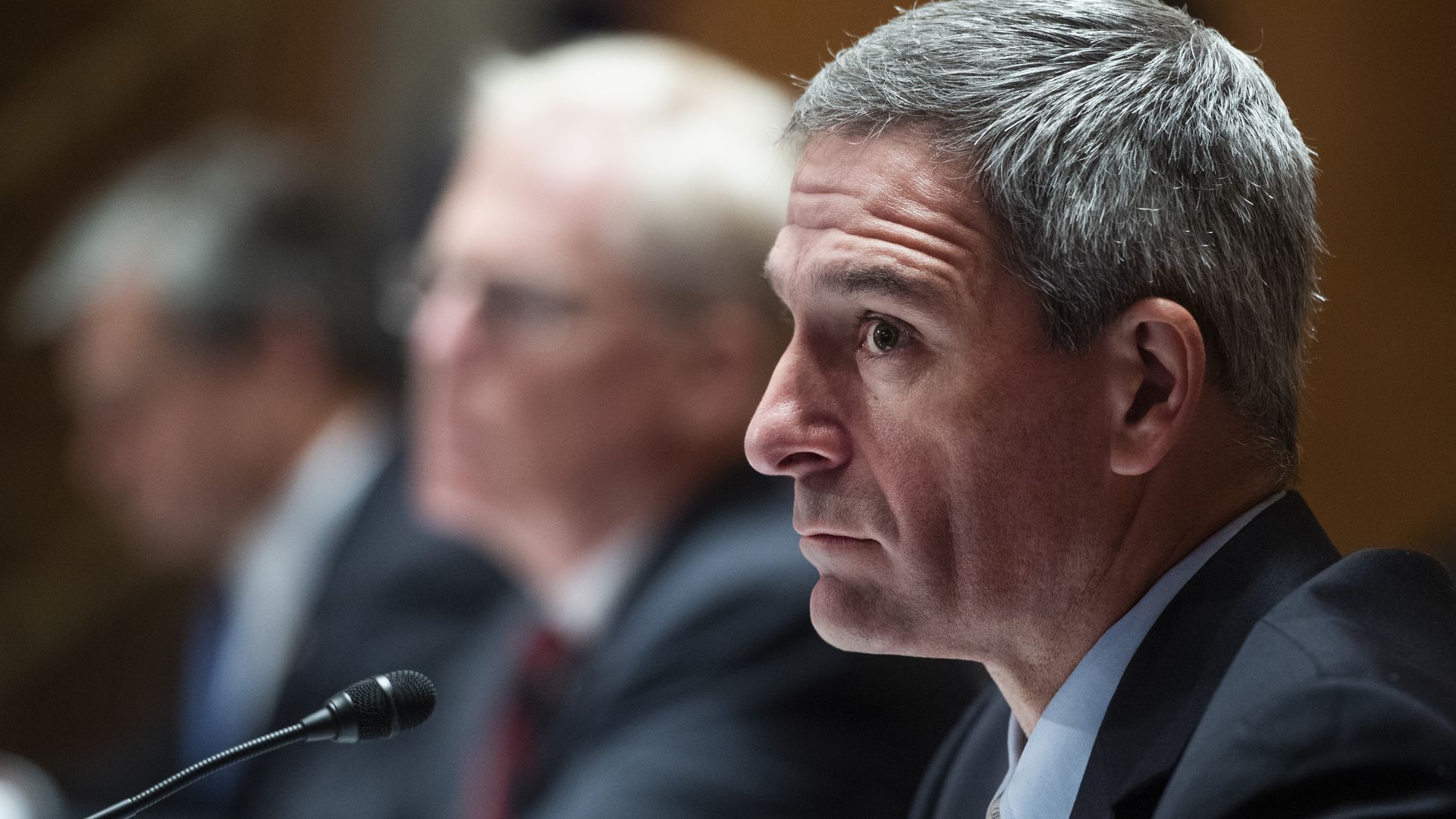Oct 6, 2020 - Politics & Policy
Trump administration announces new H-1B visa restrictions
Add Axios as your preferred source to
see more of our stories on Google.

Ken Cuccinelli, senior official performing the duties of the deputy secretary for DHS. Photo: Tom Williams/CQ-Roll Call, Inc via Getty Images/Pool
